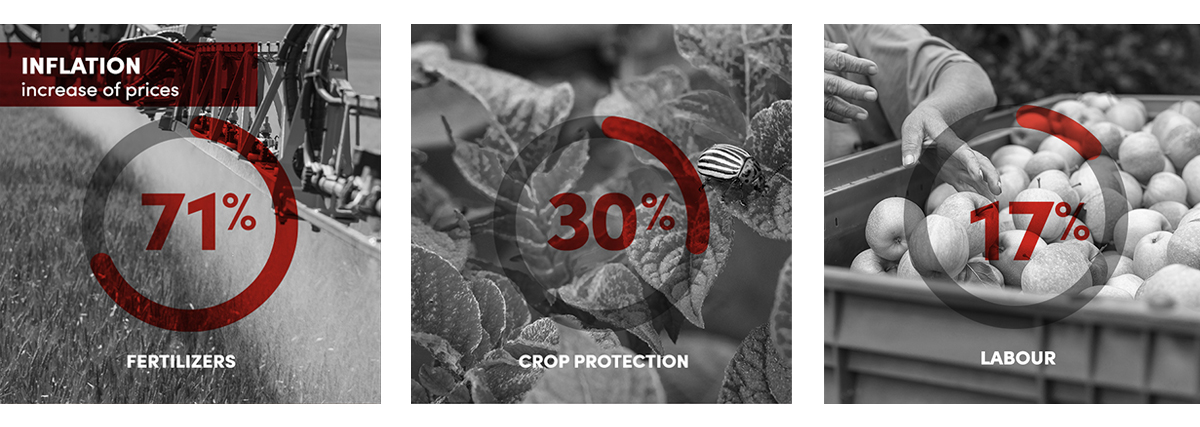Farming has always been an unpredictable business. For farmers to make their operations more efficient and cost-effective, they must contend with a wide range of external variables — extreme weather conditions, pests, and diseases.
State of Farming Sector in 2023
Aside from traditional challenges farmers face, the economic outlook for 2023 forecasts global fluctuations. Geopolitical uncertainty, climate change, and supply chain issues are contributing to an inflation-driven downturn. The farming sector has already seen and has yet to see effects, such as rising input prices, rising costs of labor, and labor shortage. Despite increased revenues for the enterprise farming sector due to a rise in crop prices, inflation continues to drive prices up, thus reducing profit margins.
Many in the farming sector are concerned about the rising input costs in the current inflationary environment. According to McKinsey (Voice of Farmers, 2022), amidst the raise in fertilizer and crop protection prices, around 60% of farmers expect to increase their spending by 10-20% in the upcoming months.
Nevertheless, stability can be maintained during challenging times by optimizing costs and investing strategically. The variability in farm operations is a unique characteristic that sets them apart from other businesses. By tracking and understanding data about production cycles, farming businesses can secure payback and improve efficiency. Investing in farm management software is a reliable and smart way to control risks and optimize costs in uncertain times.
Benefits of Digitalization in Farm Management
While some in the agriculture world may be hesitant to invest in software at this time, today’s farming businesses run undeniably complex operations, and relying on technology can only be an asset. Data-driven farm management software can help farmers piece together relevant information, make timely, informed decisions, and scale production. Using software, farmers can track crop health and monitor weather conditions in real-time, maximize yield potentials, manage finances, analyze data, and take action quickly, automating processes for greater efficiency and accuracy.
Farm management software provides numerous benefits for enterprise farms — especially in times of uncertainty. By utilizing technology, farmers can simplify administration and reduce overhead costs by streamlining processes such as record-keeping and scheduling. They can increase the quality and volume of crop yields by tracking weather conditions; increase profits through better data analysis; optimize planting schedules for maximum yield; create more efficient pest control strategies; and much more. Additionally, farm management software can help farmers stay organized and on top of tasks during times when labor supply might be limited.
Payback from Farm Management Software – When and What to Expect?
AGRIVI 360 Farm Enterprise is a market-leading software trusted by Fortune 500 companies to control complex farm operations, make data-driven decisions, and optimize costs.
On average, the payback from investing in AGRIVI software is between 8 and 11 times the initial investment. However, for some crops such as coffee, apple, strawberry, and lettuce, the potential payback goes as high as 15x.
Leveraging technology and investing in effective farm software solutions is an essential step for any agricultural business aiming to remain sustainable and stable during a challenging period.





